As you enter the military world, you'll quickly realize that mastering military slang is essential. When it comes to being a rookie, you'll hear terms like "boot" or "newbie" tossed around. But, there's more to it than just those basics. You'll want to familiarize yourself with ranks like PVT and SGT, and grasp essential terms like cadence and PT. Getting up to speed on military lingo will help you navigate this new world with confidence. And, as you explore further, you'll uncover a wealth of knowledge that'll help you thrive in your new role.
Essential Terms for Newbies
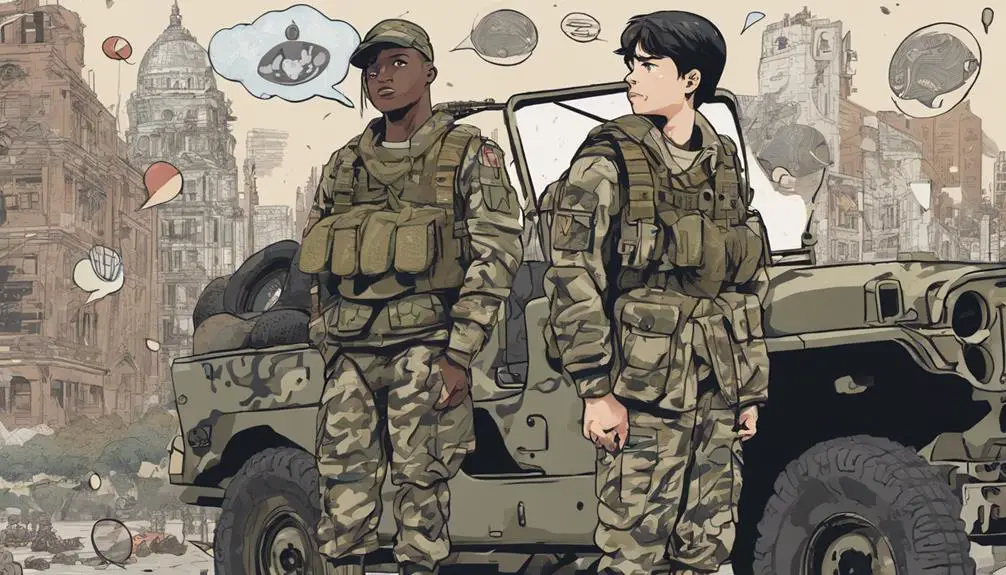
As you step into the military world, you'll quickly realize that familiarizing yourself with essential terms is important to avoiding confusion and earning respect from your comrades. Boot camp basics, for instance, will become second nature as you learn to navigate the ins and outs of military life. Understanding the lingo will help you stay afloat in a sea of acronyms and jargon.
A military mindset is essential in this environment, where clarity and precision are key. You'll need to grasp terms like 'cadence' (marching chants) and 'PT' (physical training) to keep up with your unit. Familiarizing yourself with ranks, such as 'PVT' (private) and 'SGT' (sergeant), will show your comrades you're committed to learning.
Mastering these essential terms will help you build a strong foundation in the military. It's not just about memorizing definitions; it's about embracing a culture that values precision and clarity. By adopting this mindset, you'll earn the respect of your comrades and set yourself up for success in your military career.
Slang for Military Operations
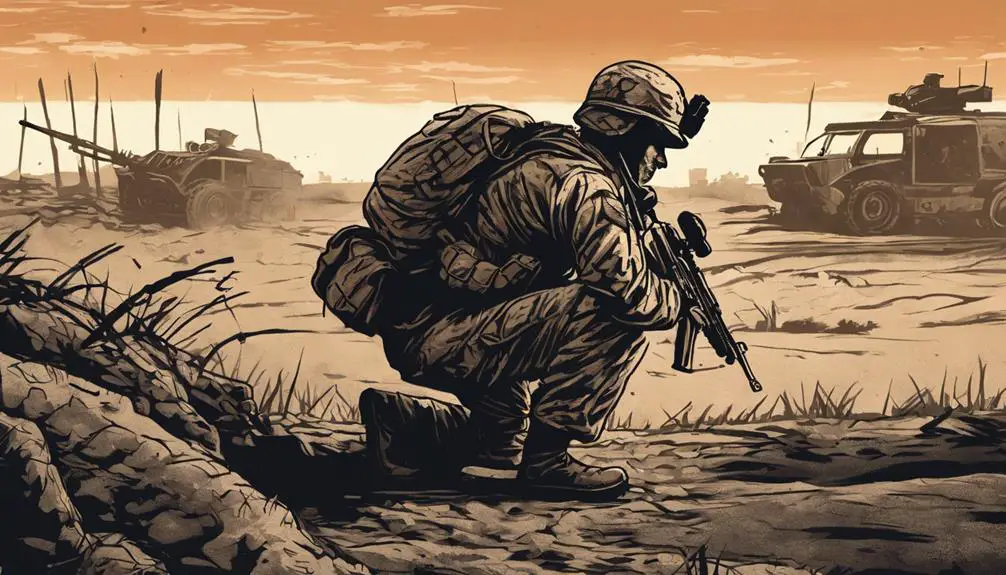
You'll soon discover that military operations involve a unique lexicon that's just as important to master as boot camp basics. From COIN ops (counterinsurgency operations) to Force multipliers, understanding these terms will help you navigate complex military scenarios. COIN ops, for instance, refer to military strategies aimed at defeating insurgent forces, often involving civil-military operations. On the other hand, a Force multiplier describes a capability or asset that greatly enhances the effectiveness of a military unit, such as advanced surveillance technology or elite special forces.
In the heat of battle, clear communication is essential, and that's where military slang comes in. Knowing the lingo helps you quickly convey critical information, reducing confusion and saving lives. For example, 'SITREP' (situation report) is a concise way to provide an update on the battlefield situation. Mastering these terms won't just help you sound like a seasoned pro; it'll also improve your ability to make quick, informed decisions under pressure. As you dive deeper into military operations, you'll encounter many more terms like these. Stay alert, stay informed, and remember – in the military, communication is key to success.
Ranks and Roles Decoded
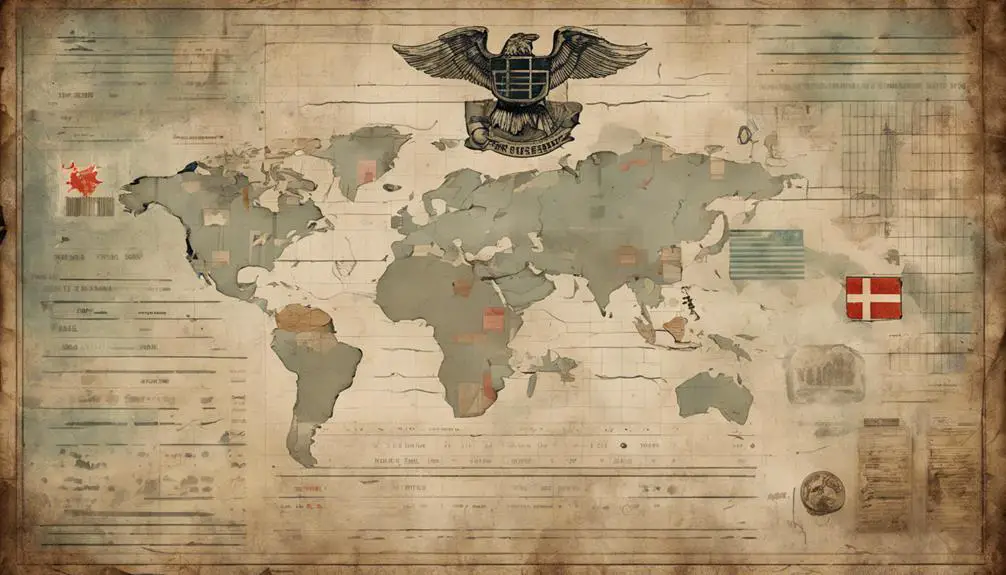
In the military, understanding the hierarchy of ranks and roles is vital to maneuvering the chain of command, and it begins with recognizing the distinction between enlisted personnel and officers. You'll need to grasp that enlisted personnel make up the bulk of the military, with roles ranging from infantrymen to medics. Officers, on the other hand, are leaders who have completed officer training and are responsible for making strategic decisions. As you navigate the chain of command, it's essential to recognize the different ranks within each category, from Private to General. Military protocol dictates that you address each rank accordingly, using titles like 'Private' or 'Sir.' Failure to do so can result in disciplinary action. Remember, the chain of command is in place to ensure efficiency and effectiveness in high-pressure situations. By following protocol and respecting the hierarchy, you'll avoid confusion and guarantee a smoother operation.
Military Jargon for Comms
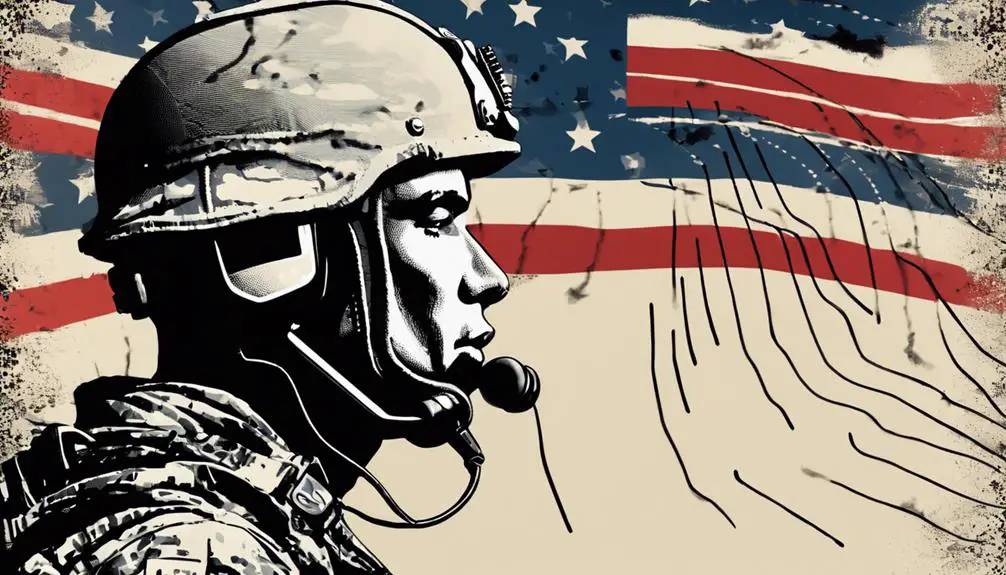
When communicating with fellow soldiers, you'll need to familiarize yourself with military jargon for comms to guarantee a seamless exchange of critical information. Radio checks, for instance, are pivotal to making sure your equipment is functioning correctly. You'll need to perform regular checks to verify that your radio is transmitting and receiving signals clearly. This involves conducting a 'commo check' to confirm your radio is operational and you're receiving signals from other units.
Call signs are another essential aspect of military jargon for comms. These unique identifiers are used to address specific units or individuals over the radio. You'll need to learn and memorize call signs for your unit, as well as those of adjacent units, to facilitate efficient communication. Additionally, you'll need to understand the different types of call signs, such as tactical call signs, which are used for secure communication. By mastering these fundamental aspects of military jargon for comms, you'll be able to effectively communicate with your team and guarantee mission success.
Lingo for Life on Base
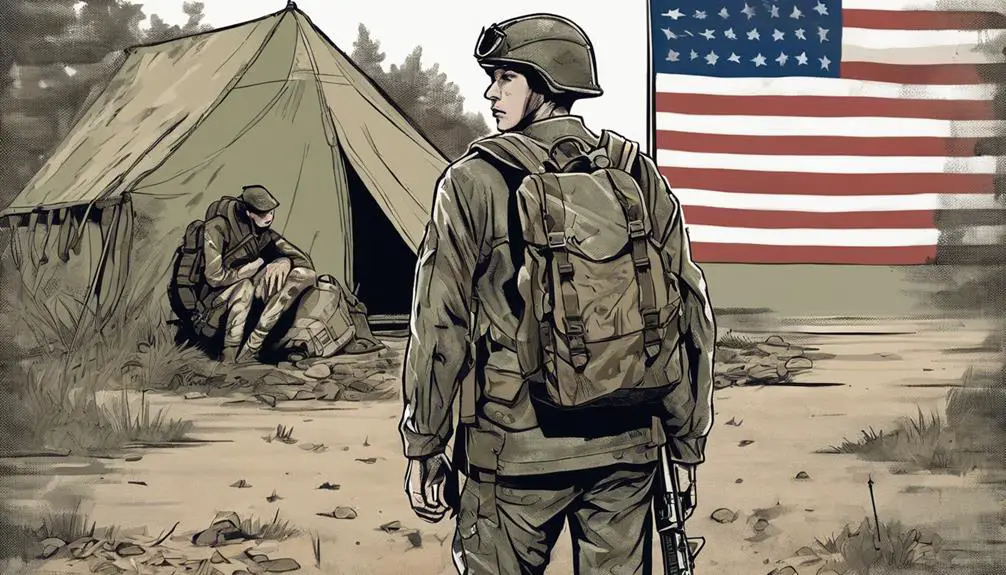
As you swap your comms gear for a base pass, it's time to learn the lingo that'll get you through daily life on base, where 'rook' is just the beginning of the military slang you'll need to know. You'll quickly realize that base amenities are an essential part of your daily routine. You'll hear terms like 'PX' or 'BX' thrown around, referring to the base exchange, where you can grab essentials and souvenirs.
When you're not shopping, you'll likely be chowing down at the mess hall. Remember, mess hall etiquette is key. Don't be 'that guy' who takes the last serving without refilling the tray – it's just bad form. You'll also hear 'chow hall' or simply 'mess' tossed around, so don't be confused. On base, you'll also encounter 'DFAC' (dining facility), which is just a fancier term for the mess hall. And, yes, you'll hear 'latrine' or 'head' used to refer to the bathroom – get used to it! Mastering this lingo will help you navigate base life like a pro.
Slang for Morale and Welfare
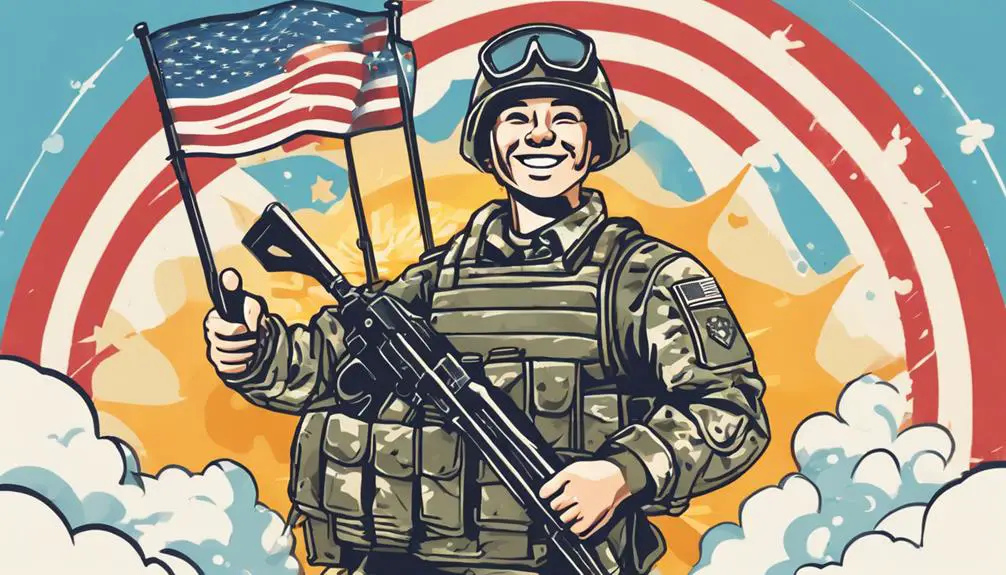
You'll soon discover that military slang extends beyond daily routines to encompass morale-boosting activities, where terms like 'MWR' and 'USO' become essential to your downtime. MWR stands for Morale, Welfare, and Recreation, which provides services and activities designed to boost your morale and improve your overall well-being. From fitness classes to outdoor recreation, MWR offers a range of programs to help you unwind and recharge.
The USO, or United Service Organizations, is another crucial player in the morale-boosting game. This non-profit organization provides entertainment, care packages, and other services to troops stationed around the world. Think of them as Welfare warriors, fighting to keep your spirits high even in the toughest of times.
As you navigate military life, you'll come across other morale boosters, from unit-level events to base-wide celebrations. Understanding these terms will help you stay in the loop and make the most of your downtime. So, take advantage of these morale-boosting activities and make the most of your military experience.
Frequently Asked Questions
Can I Use Military Slang in Civilian Conversations?
Imagine you're at a coffee shop and a friend says, 'I'm Oscar Mike to the gym, wanna join?' You're confused, thinking they're speaking a different language. That's because 'Oscar Mike' is military slang for 'on the move.' While it might be tempting to use military slang in casual conversations or social media language, it's crucial to keep in mind your audience. If you're not surrounded by fellow veterans, it's best to stick to plain English to avoid confusing or alienating others.
Is Military Slang Only Used in the US Military?
You might think military slang is a uniquely American phenomenon, but it's not. Global military slang evolution has led to diverse expressions across different countries and cultures. Historically, military slang originated from ancient Rome and Greece, where soldiers used colloquialisms to communicate efficiently. As armies evolved, so did their slang, influenced by local dialects and cultural nuances. Today, military slang is a universal language, with variations used by armed forces worldwide.
Are There Different Slang Terms for Different Military Branches?
You're wondering if different military branches have their own slang terms. The answer is yes! Each branch has its unique lingo. For instance, the Army has its own set of slang, while the Navy has its own distinct lingo. The Marine Corps jargon is particularly colorful, with terms like "Oorah" for enthusiasm and "Hooah" for agreement.
Can Military Slang Be Used to Disrespect Authority?
As you navigate the complex world of military slang, you might wonder if using it can be a way to subtly disrespect authority. Think of it like a wink to your fellow soldiers, a way to subvert the strict hierarchy. But be careful, using military slang with a disrespectful tone or insubordinate language can land you in hot water. Remember, the line between camaraderie and insubordination is thin, and crossing it can have serious consequences.
Is Military Slang Only Used by Enlisted Personnel?
You might assume military slang is exclusive to enlisted personnel, but that's not entirely true. While it's true that enlisted-only jargon exists, officer-centric slang also has its place. In reality, both officers and enlisted personnel use military slang, often with varying degrees of formality and context. Think of it as a cultural language that transcends rank, but adapts to the specific role or unit.







